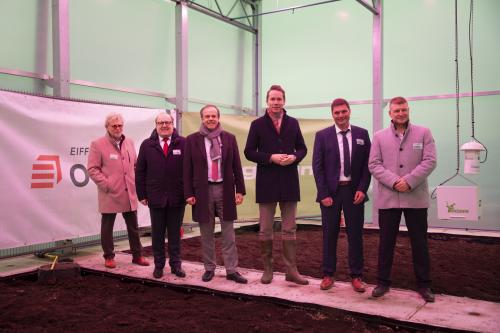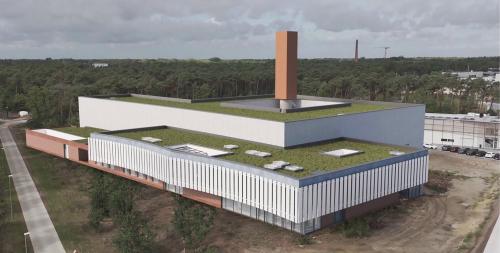From contaminated soil to sustainable innovation: how C-biotech is making a difference with hemp and science.

From hypothesis to confirmation
The test took place at a site of Campus Vesta, where PFAS contamination was present in the soil. "We divided the site into test zones and found that in some zones the uptake of PFAS in the leaves was much higher. That triggered us to dig further - literally and figuratively."
The team made an unusual discovery: some PFAS molecules had completely disappeared, and degradation products were found in the leaves that were not originally in the soil. "According to the literature, those substances could not be degraded without extreme temperatures. But when we searched further, we found a study that described just that process in detail - carried out on a laboratory scale in January 2025. That was a real aha moment: our hypothesis turned out to be correct."
More than a scientific success
Why is that so important? "Because it proves that what we do is not just “experimental”. It is underpinned by science ánd it shows potential for large-scale applications," says Ingmar. "This is also why I made the switch from university to C-biotech. Here I can really use that knowledge and make an impact."
For C-biotech, this research is a lever to something much bigger. "We want to accelerate and scale up this method. This can be done by adding even more micro-organisms, or by genetically upgrading the hemp plant so it grows faster or absorbs more pollution."

From test site to international collaboration
The next step involves validating the results on a larger scale. ‘We are now repeating the research together with the University of Buffalo in the US,’ Ingmar says, "There, they are going to use their expertise in analytical chemistry in particular within the project. And in Australia, we are also setting up a test project. If we can demonstrate on three continents that it works, then no one can ignore it. Then the road to large-scale application will be open."
A vision that touches everyone
What makes this project so powerful is the broader vision behind it. ‘At C-biotech, we look at the hemp plant as a solution to multiple challenges at once,’ Ingmar explains. "It can contribute to purifying soils, making bio-based building materials as well as sequestering CO₂. That's the kind of solutions the world needs."
‘It's a win-win-win: for the soil, for construction and for the climate.’
And that also gets to the heart of what Cordeel Group stands for. "We think beyond today's project. We are building a sustainable future. That requires investment, vision and guts - and we have that."
"You can build an economic model founded on sustainability. That's the beauty of the business."A vision that touches everyone.

Why you need to know
This project is not only important for C-biotech, but for the whole group. It shows that we are leaders in sustainable innovation - something that is becoming increasingly important in our industry as well as in society.
‘Every colleague is an ambassador,’ says Ingmar, ‘The more people know what we are doing, the stronger we are.’
So: whether you work in the office, on site or in a warehouse - this is your story too. And proof that we as a group are not waiting for change to happen, but are initiating it ourselves.
Curious about the full scientific article?
Want to really understand how plants, bacteria and mushrooms work together to clean up PFAS? And how we have been able to accelerate that process? Then read the full article via this link.









